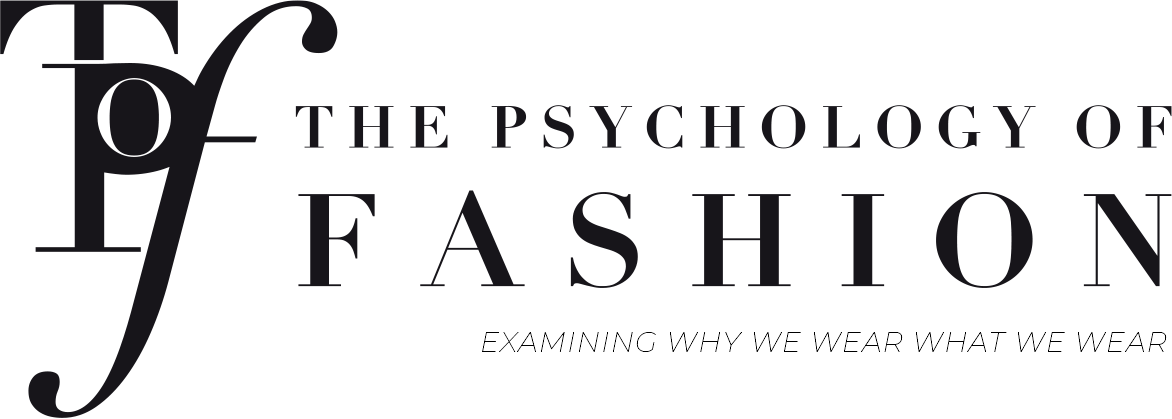The fashion psychology study I carried out revealed something (semi) surprising: many of those work in fashion scored high for neuroticism. The trait is one of the dimensions of the five-factor model of personality within the field, rated by responses to statements such as “I worry about things a lot”, "I find it hard to stay in a good mood", and "I often feel anxious". It was also those that scored high on neuroticism that liked the most creative and directional designs and brands. The brands who show the most cinematic, theatrical, and at times, slightly sinister collections.
The neurotic creative genius archetype is nothing new. It’s been endlessly debated, mostly proven, and even celebrated by intellectual circles and the likes of Woody Allen. But being neurotic has come to signal much more than merely being anxious or difficult. It has come to mean being interesting.
But in the hostile ecosystem that is the fashion industry, neuroticism makes you extra vulnerable to a host of issues. Many clichés come to mind: the designer who quells his anxiety with alcohol and cocaine, the eating-disordered assistant, or the sadistic yet insecure fashion editor. Drugs, alcoholism, personality disorders, depression, and anorexia, are all linked to the trait of neuroticism.
But far more commonly, neuroticism shows up as phenomenons such as “impostor syndrome” (an inability to internalize accomplishments and a persistent fear of being exposed as a "fraud"), taking professional rejection really really hard – as if your entire self-worth as a human being is being refuted, incessant comparison to others in the field, and worrying endlessly about results and your place in the industry.
The nature of the industry doesn’t help. There is this undercurrent of ego among a highly hierarchical and very visible structure. Immense pressures and a focus on perfection. As a result, there are profound feelings of rejection within fashion. When Lucinda Chambers was fired from Vogue after 36 years, her main worry was, “will I have a ticket?” Isabella Blow allegedly killed herself out of concern for her “waning celebrity status”. The anxiety of remaining “relevant” is perhaps nowhere more intense than it is in the fashion world. So much of your identity becomes ties to who you are in the industry. You become dependent on the flow of validation it gives.
Then there are the industry’s unsavoury conditions – few coveted jobs, a bullying and hazing culture, strained resources and low pay for many of its workers, in some cases abuse, intense workloads, and the fast pace of the fashion system.
This prevalence of neuroticism paired with poor conditions has resulted in many real tragedies and lifelong struggles, among them Alexander McQueen, Isabella Blow, L'Wren Scott, John Galliano, Yves Saint Laurent, and Marc Jacobs (who has been to rehab twice), and Christophe Decarnin, who left Balmain in 2011 amid rumors about his mental health.
But too much has already been said about “fixing the system” as the solution – strategies such as slowing the pace down. This is an overly simplistic explanation to a far more complex dynamic. Also, some designers including Erdem, Karl Lagerfeld, and Rick Owens have reported that the pace keeps them sharp, and it has been shown that many neurotic people actually tend to work better under pressure.
In reality, fashion's collective psyche of neurotics won’t change. Decades of research suggest that scores on these measures are relatively stable through life. I believe that you were as predisposed to neurotic tendencies as you were predisposed to wanting to go into fashion itself when you started wading through your first magazine. As Justine Picardie once said, “the reason clothes are potent is because of what they are covering up”.
Can we fix this? Like any good psychologist will tell you, awareness is half the battle. The other half is a mix of healthy coping strategies, good daily habits, and then celebrating yourself the way you are.
But if anxiety is so distressing, why celebrate it? Because is pays to accept that to a high degree, anxiety and emotional challenges are the price we pay for creativity, imagination, and intelligence. The same skills that make us good at imagining, or spotting inconsistencies in content and imagery will also turn against us at times.
This is not to say that the systemic issues the industry faces shouldn’t be addressed. But we need to celebrate to eliminate the self-punishing and feeling bad about feeling bad that comes with being neurotic. Realize that the things that make you really good at your job, can make the rest of your life a little bit tough.
According to Daniel Smith, author of Monkey Mind: A Memoir of Anxiety, there’s research and a whole history of claiming that anxiety, for all the pain it causes, is a sign that the person who struggles with it exists in a higher state of being than those who don’t - that they are more alive to life’s contradictions, more receptive to the true nature of things, that they have sharper vision, more sensitive skin. That they are more conscious than other people.
So rejoice. Because what you resist persists. Celebration means acceptance. And acceptance changes the degree of how much power something has over you.
The bargain, according to Smith is to “admit the anxiety as an essential part of yourself and in exchange that anxiety will be converted into energy, unstable but manageable. Stop with the self-flagellating and become yourself, with scars and tics.”

